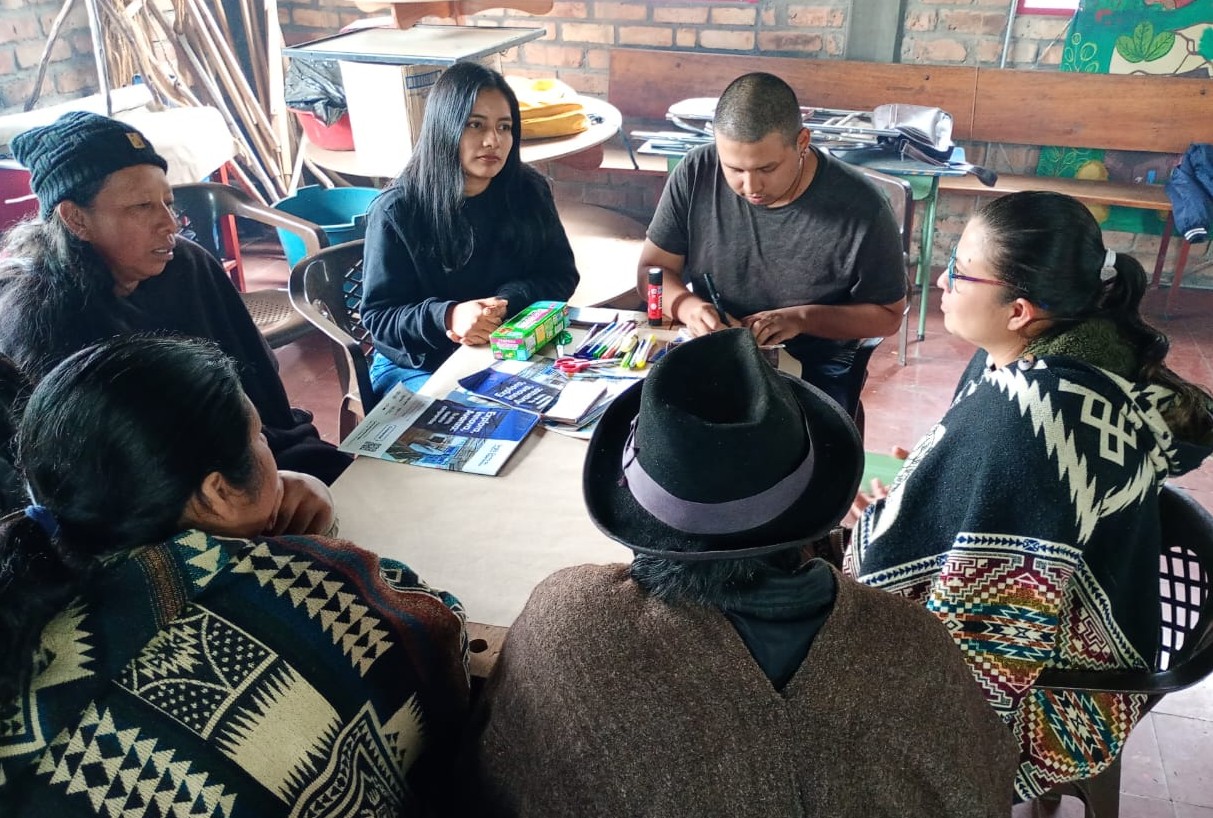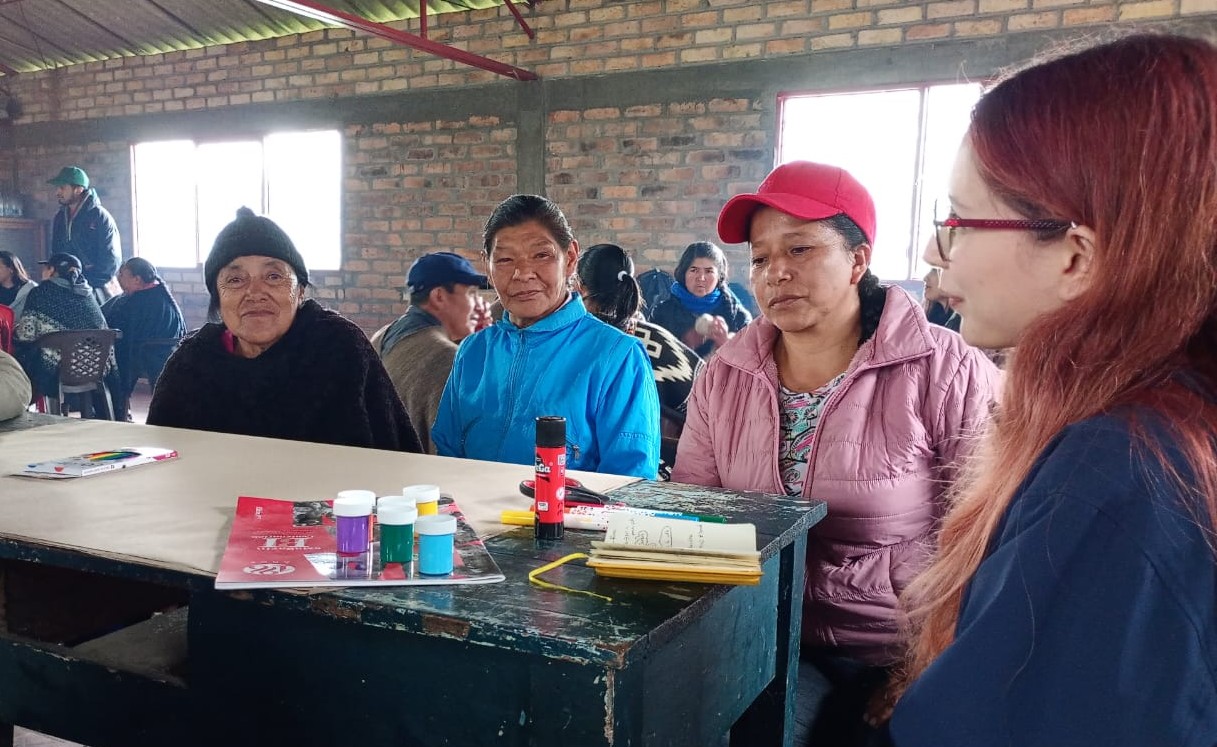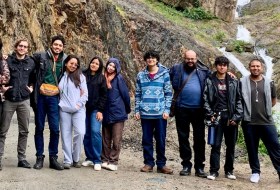News
Unicaucan Students build bridges of dialogue with the women of the Ancestral Indigenous Council of Rioblanco
Students from the Philosophy program have fostered ties for research and social outreach between the University of Cauca and the ancestral community of Rioblanco, promoting community work through a comprehensive, civic, and socially responsible education.
On Friday, May 16, a group of students and professors from the Department of Philosophy of the Faculty of Human and Social Sciences, members of the study group Readers and Readings of Modern Philosophy organized, planned, and facilitated a dialogical workshop with a group of women from the ancestral territory of Rioblanco (Sotará, Cauca).
The workshop had two central goals: first, to build connections for research and social engagement between the University of Cauca, particularly Philosophy students, and the Ancestral Indigenous Council of Rioblanco; and second, to encourage Unicauca students to engage in community work through holistic, civic, and socially committed education.

Provided photo
The workshop, titled “Women of Rioblanco: Territory, Chagra, Seeds, and Governance,” brought together students and women from the community in conversations about the vital role of women within Rioblanco’s social and cultural fabric.
The session highlighted how the understanding of territory has shaped social struggles in the community, while also deepening reflection on the cultural significance of the chagra (traditional agroecological garden) and the multiple meanings of seeds within their practices and worldview.
This dialogical experience ultimately invited participants to reflect on the importance of identity and the empowering role of women-led governance.

Provided photo
Professors Pedro Silva and Yerson Carrillo Ardila emphasized that this type of exercise allows students to recognize that while theoretical work is fundamental to the tradition and training in philosophy, it is not the only path to pursue within the university setting.
"The vision for this workshop lies in the development of a research project aimed at social appropriation of knowledge and at actively strengthening bridges between academia and civil society," concluded Professor Carrillo.
Written by: Center for Communications Management


